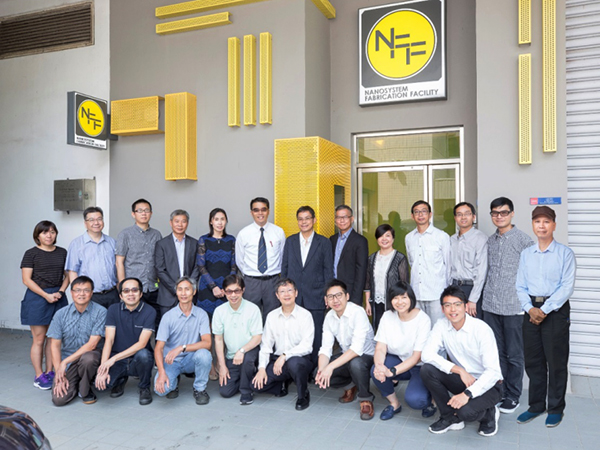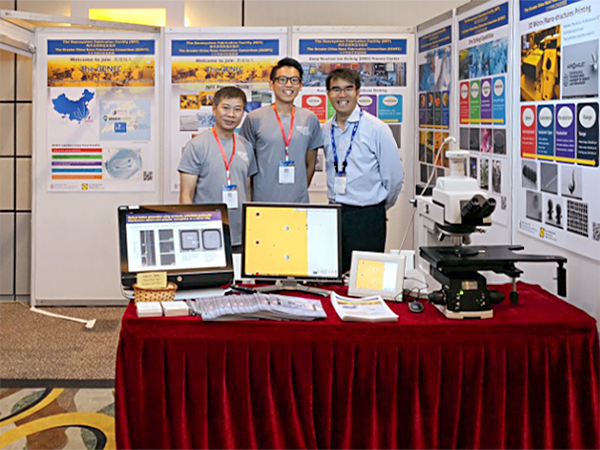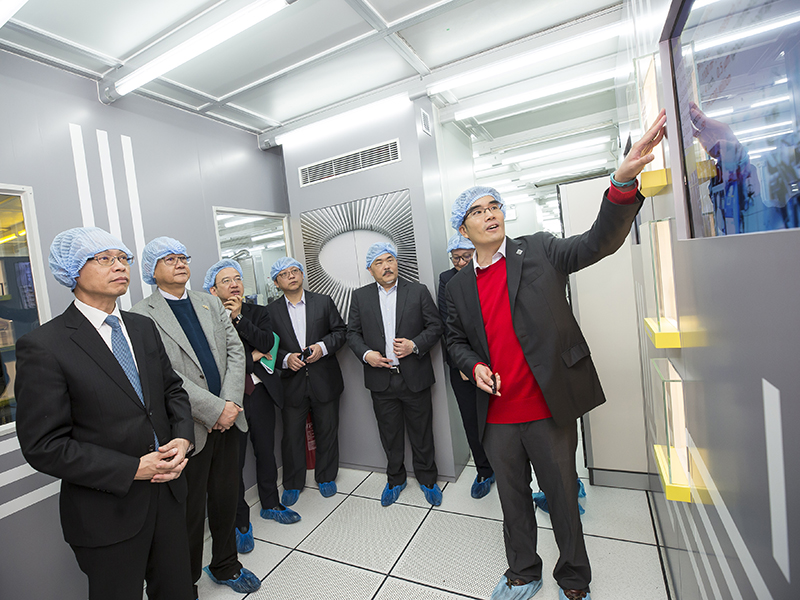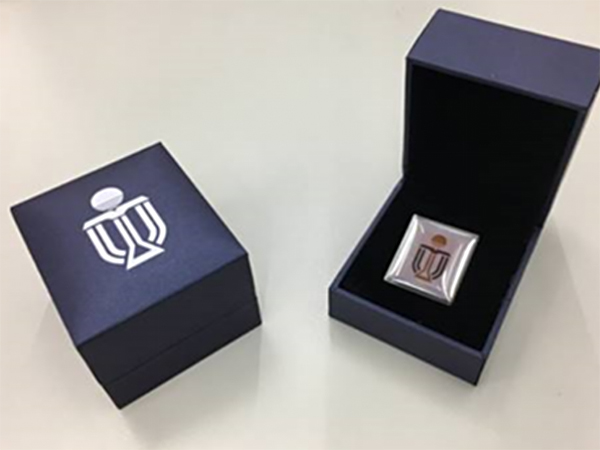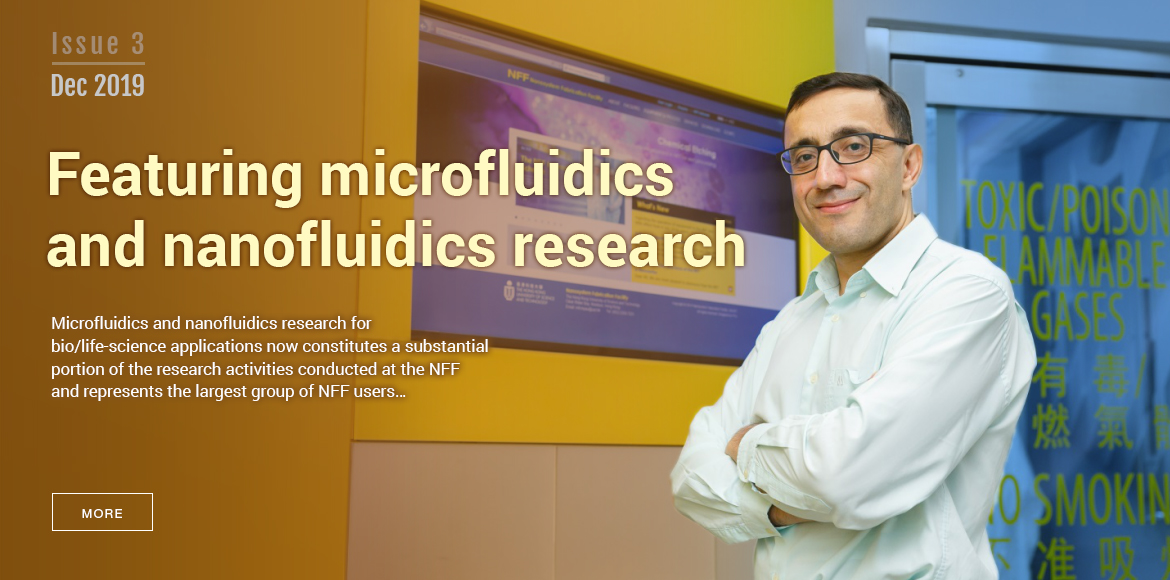
Issue 3 | Dec 2019
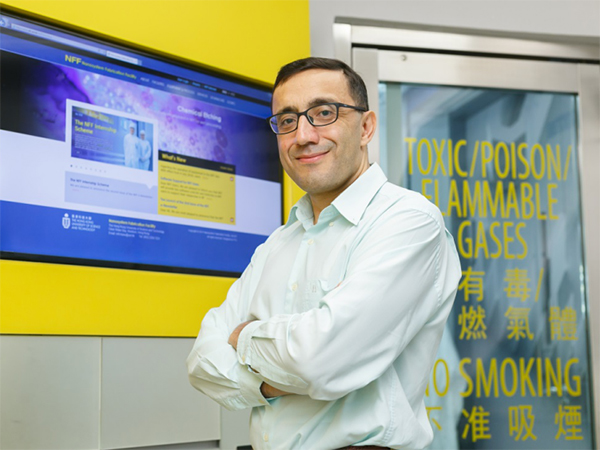
Featuring microfluidics and nanofluidics research
Microfluidics and nanofluidics research for bio/life-science applications now constitutes a substantial portion of the research activities conducted at the NFF and represents the largest group of NFF users...
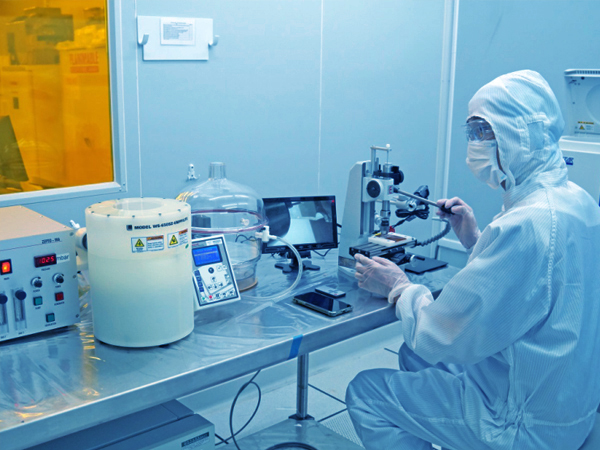
New equipment and process capabilities
One major initiative by the NFF is in strengthening the fabrication infrastructure for the research area of microfluidics. This is based on extensive consultations with major PIs in the area...
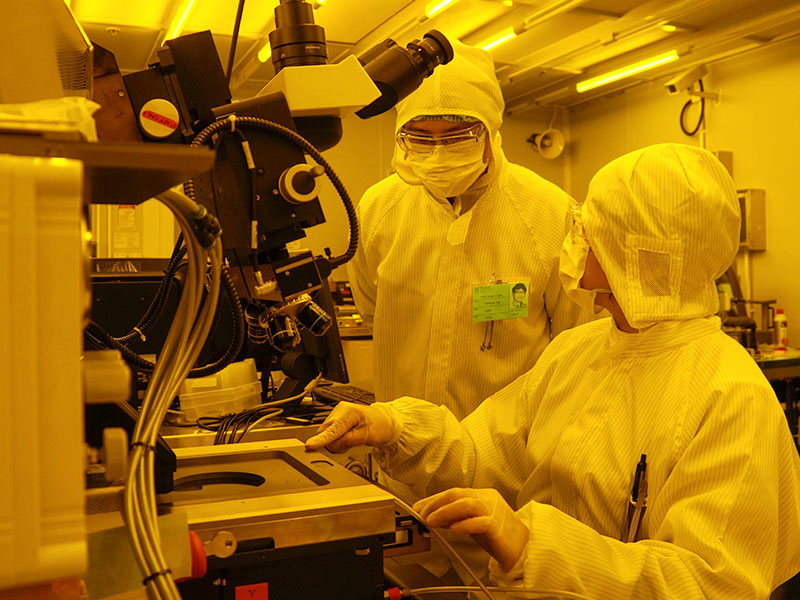
The NFF P-Card Policy
The NFF introduced a “Probation (P) Card” Policy on 2 October 2019. The objective of the policy is to encourage more practices on equipment operations and trainings for new ("green") users in order to avoid serious operational mistakes from or accidents involving "green" users.
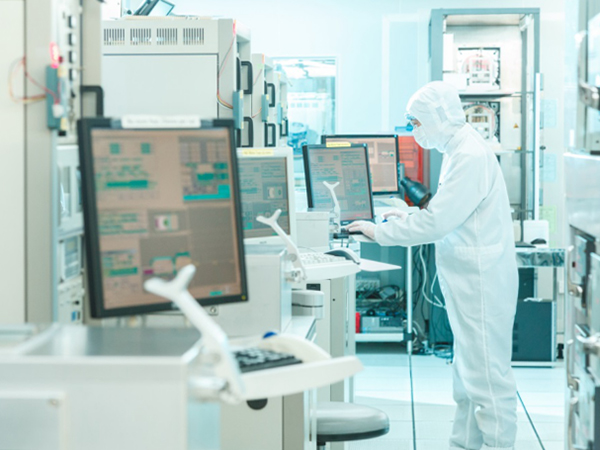
The RGC Joint Laboratory Funding Scheme
The NFF has been awarded the RGC Joint Laboratory Funding Scheme (JLFS) in June 2019 to acquire a state-of-the-art R&D-grade inductively coupled plasma (ICP) etching system for compound semiconductors. The application has been jointly submitted under the Joint Laboratory of Microelectronics of the NFF (HKUST) and the Institute of Microelectronics of the Chinese Academy of Sciences (IMECAS), ...
Graduated NFF users in 2017/18
The NFF congratulates a total number of 53 NFF users graduated in 2017/18:

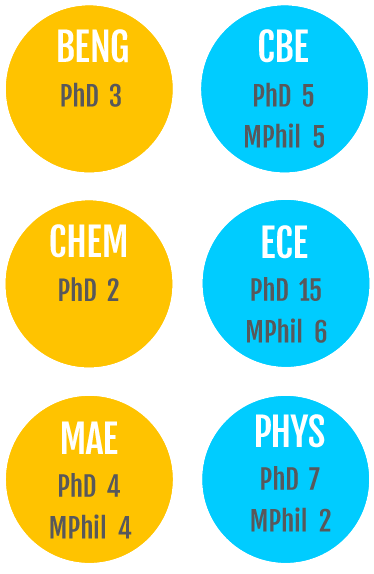
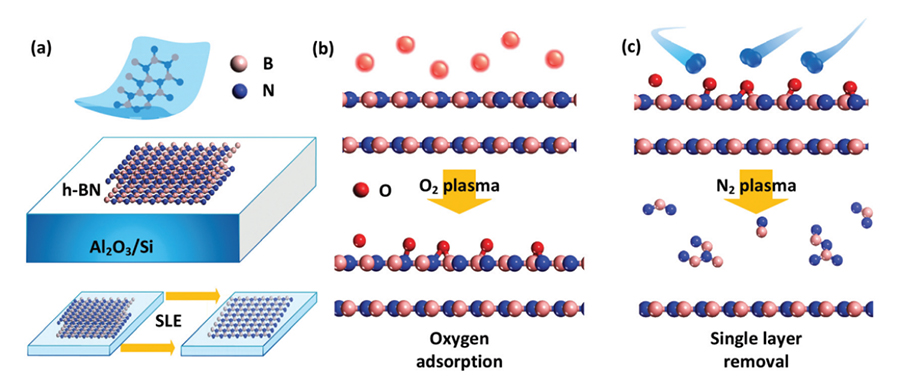
Publication Highlights
NFF user Zichao MA’s paper “Control of hexagonal boron nitride dielectric thickness by single layer etching” was featured as the Back-Cover Article of the Journal of Materials Chemistry C, published by the Royal Society of Chemistry in June 2019. Zichao MA is supervised by Prof. Mansun CHAN...
